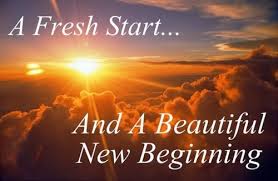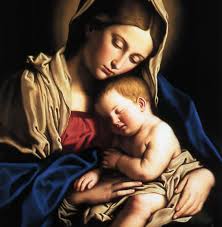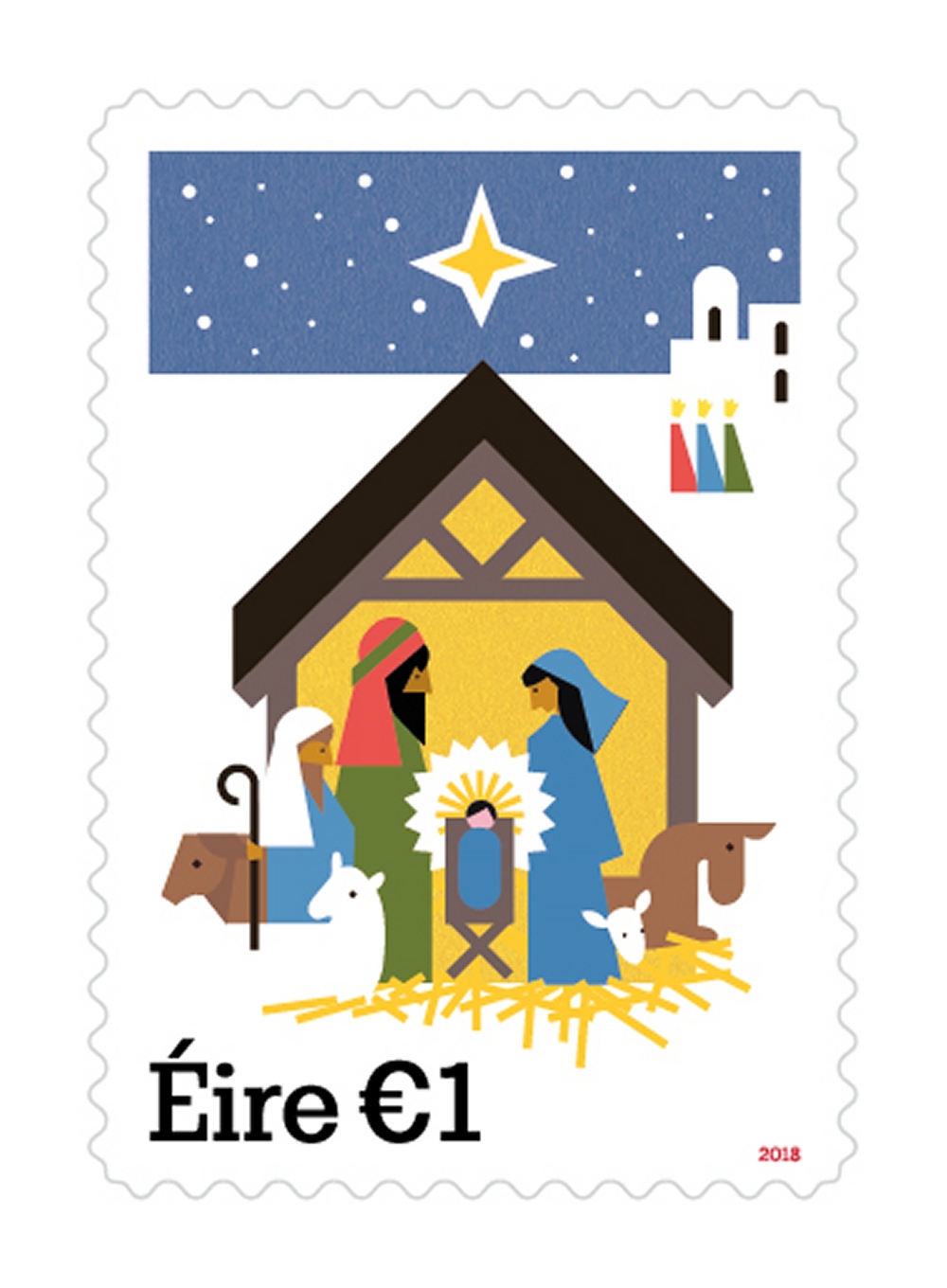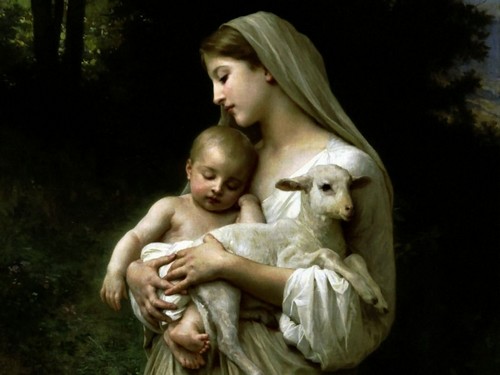
– 1-1-2019 –
Mary, The Holy Mother of God
Gospel text : Lk 2:16-21
V16. The shepherds hurried away and found Mary and Joseph, and the baby lying in the manger.![]()
V 17 When they saw the child they repeated what they had been told about him, and
V18. everyone who heard it was astonished at what the shepherds had to say.
V 19 As for Mary, she treasured all these things and pondered them in her heart.
V 20 And the shepherds went back glorifying and praising God for all they had heard and seen; it was exactly as they had been told.
V 21When the eighth day came and the child was to be circumcised, they gave him the name Jesus, the name the angel had given him before his conception.
*******************************************************************
We have four commentators available from whom you may choose. Scroll down to he the name of the commentator required.
Thomas O’Loughlin: Professor of Historical Theology, University of Nottingham.
John Littleton Priest of the Cashel Diocese and Director of Priory Institute for Distant Learning
Martin Hogan, CC-PP , Clontarf, Dublin Diocese, Scripture Commentator
Donal Neary SJ Editor of the Jesuit Messenger Magazine
********************************************************
Thomas O’Loughlin
Liturgical Resources for the Year of Matthew
www.columba.ie
Introduction to today’s Celebration
This is a great day of joy the world over: a new year has just begun and with it is the hope of new relationships of peace, new endeavours to make life better for the human family, and resolutions to start afresh in many areas of our individual lives. We as Christians share this joy for our good news is that the Father of mercies is always extending his love and care so that we can return to him and start over afresh. In sending us his Son as a human being born of Mary in Bethlehem he showed the depth of that love: he offered a new era to the whole human race, and now we are celebrating the beginning of the two thousandth and twelfth year of that era. Now let us reflect on all that we want to start afresh in the coming year, let us ask the Father to help us overcome the old ways of sin and death, and to give us his help in our new endeavours.
General Notes
 The most basic fact about today is that it is New Year’s Day, the public holiday that marks the end of the holiday season, and the beginning of any number of other things from diaries to keeping accounts of various sorts. In everyone’s eyes it is a special day. If we think of time as made up of ‘stressed’ (= special days; special time) and ‘unstressed'(= ordinary days; everyday time) periods, then this is a ‘stressed’ day par excellence. It is a day that begins very consciously at midnight on New Year’s Eve with parties, fireworks, bells, and street theatre, and is ended by the television news showing how this day, because it is this day, has been celebrated around the world. There are other New Year’s days (Jewish New Year, Muslim New Year, Chinese New Year), but this is the calendar day that is most widely celebrated. So if people do celebrate by joining together for the Eucharist — and it is an excellent way for a Christian community to begin the New Year — they will expect that this is the focus of the celebration. However, if we follow the liturgical calendar they will be disappointed: there is no mention of today being New Year’s Day in the prayers in the Missal — indeed the only mention of New Year’s Day is found in the solemn blessings (Missal, p 368) where there is one for the ‘Beginning of the New Year.’ This failure to celebrate with those celebrating New Year is a major fault of the calendar reform of 1970. While it seemed to the reformers that there was no better way to mark this day than to make it a celebration of Mary’s greatest title, Theotokos, that notion is so far away from most people’s imagination that it just creates confusion.
The most basic fact about today is that it is New Year’s Day, the public holiday that marks the end of the holiday season, and the beginning of any number of other things from diaries to keeping accounts of various sorts. In everyone’s eyes it is a special day. If we think of time as made up of ‘stressed’ (= special days; special time) and ‘unstressed'(= ordinary days; everyday time) periods, then this is a ‘stressed’ day par excellence. It is a day that begins very consciously at midnight on New Year’s Eve with parties, fireworks, bells, and street theatre, and is ended by the television news showing how this day, because it is this day, has been celebrated around the world. There are other New Year’s days (Jewish New Year, Muslim New Year, Chinese New Year), but this is the calendar day that is most widely celebrated. So if people do celebrate by joining together for the Eucharist — and it is an excellent way for a Christian community to begin the New Year — they will expect that this is the focus of the celebration. However, if we follow the liturgical calendar they will be disappointed: there is no mention of today being New Year’s Day in the prayers in the Missal — indeed the only mention of New Year’s Day is found in the solemn blessings (Missal, p 368) where there is one for the ‘Beginning of the New Year.’ This failure to celebrate with those celebrating New Year is a major fault of the calendar reform of 1970. While it seemed to the reformers that there was no better way to mark this day than to make it a celebration of Mary’s greatest title, Theotokos, that notion is so far away from most people’s imagination that it just creates confusion.
So we have the world, and most Christians, celebrating New Year’s Day but the calendar wants to celebrate a Marian feast; but there is still more confusion: one is also celebrating the octave day of Christmas (i.e. liturgically we can still view today as Christmas Day) and there is usually a desire to celebrate this day as ‘a day of prayer for peace‘ — a theme that is just imposed on top of the liturgy. If one tries to celebrate all of these by combining them, the liturgy becomes a muddle: ‘we are here to celebrate X and Y and it is also Z and we will also keep in mind…’
Today there is still a fragrance of celebration in the air that the liturgy must capitalise on, and build upon, and sanctify: people know that something new is happening, there is a frisson of expectation, there is a moment of levity and goodwill; this can be the experience that can shape an attitude to the eucharistic mysteries so that the celebration of ordinary life also becomes a celebration of the incarnate One who has made the whole world holy by his presence.
We might wonder how this occurred, especially when there is a Votive Mass for ‘The Beginning of the Civil Year’ (Missal, p 828) but with this rubric: ‘This Mass may not be celebrated on 1 January, the solemnity of Mary the Mother of God.’ In the pre-1970 rite this day was the Octave Day and the feast of the Circumcision with the single verse, Lk 2:21, as its gospel. In order to make more of this it became the present Marian feast. However, for those parts of the world where New Year was not on 1 January the reform instituted the votive Mass with its more inclusive theology of sanctifying the experience of people as they celebrate. Alas, more and more places are thereby left without a Mass-text today that links with most people’s actual celebrations. This absence indicates a cultural and ritual weakness in the present calendar; and frequently causes a dissonance in celebrations. There is a strong case to approach today by ignoring this day as a Marian feast and as the octave-day of Christmas, and focus on it as New Year’s Day, even using the Votive Mass, praying that in the time-period that is beginning those gathered will grow in holiness.
Homily Notes
 1. Today is a new start for so many things: it is the beginning of a new time, it offers us new opportunities, it is a time of starting afresh, it is a time of new resolution, it is a moment to let go of the past. These are among the most basic themes of all human ritual. There is some sort of new year festival found in every religion: we have only to think of the Akitu new year festival of Babylonians which has left its imprint on the Old Testament, the great stone-age burial mound of Newgrange in Ireland which celebrates an annual solar event and thus marks a new year, or the fact that while in our society many wonder about the appropriateness of Christian ritual for Christmas, no one doubts the need for rituals for new year. The notion of renewal, or starting over seems to be deep within us and we need to celebrate it.
1. Today is a new start for so many things: it is the beginning of a new time, it offers us new opportunities, it is a time of starting afresh, it is a time of new resolution, it is a moment to let go of the past. These are among the most basic themes of all human ritual. There is some sort of new year festival found in every religion: we have only to think of the Akitu new year festival of Babylonians which has left its imprint on the Old Testament, the great stone-age burial mound of Newgrange in Ireland which celebrates an annual solar event and thus marks a new year, or the fact that while in our society many wonder about the appropriateness of Christian ritual for Christmas, no one doubts the need for rituals for new year. The notion of renewal, or starting over seems to be deep within us and we need to celebrate it.
2. This notion of the need to be able to start over, to let by-gones be by-gones is precisely what we celebrate as the redemption christ has won for us.He comes to us with the offer of his foregiveness, with the possibility of a new start, a rebirth. This is why the basic Christian ritual is baptism: the past is over, life begins afresh. This is the same renewal that lies at the heart of Christian forgiveness and the Sacrament of Reconciliation: the past is dead, we can begin anew.
 3. The birth of Jesus was a fresh start for the whole of humanity: that is why we Christians started counting the years from that time just over two thousand years ago.
3. The birth of Jesus was a fresh start for the whole of humanity: that is why we Christians started counting the years from that time just over two thousand years ago.
4. Just as we want to start over today in so many ways, the Lord offers us the opportunity to start over afresh in lives through his forgiveness. He offers us the loving hand of his friendship at each gathering at his table. He offers us the strength and grace to walk towards the good in our new year’s resolutions.

5. For many people on this day, that the past will remain past and that a fresh start can be made is just a deeply held desire that may be simply the assertion of optimism over experience; for Christians the forgiveness and new beginning we all need is the very heart of the good news of Jesus the Christ.
****************************************************************
John Litteton
Journeying through the Year
www.Columba.ie
Gospel Reflection
At the beginning of the New Year many people make resolutions for the future and, although the passing of time proves that most people do not persevere, they intend to adhere faithfully and diligently to those resolutions. The New Year is usually a time of planning ahead, aspiring towards ideals, setting ambiguous targets and working to reach those ideals and achieve those targets.
Some people decide to devote more time to their spouses and children because they are conscious that, in the past, they have focused too much on work or other activities and neglected family life. Others resolve to work more efficiently so that they can honestly justify their earnings. Some students choose to study systematically and consistently, hoping that they will perform successfully in their examinations later in the year. Many people decide to become healthier by dieting and exercising, especially after their festive eating and drinking during the Christmas season.
 But life is not as simple as making New Year resolutions and effortlessly keeping them. Experience teaches us that we are creatures of habit and that it is particularly difficult for most of us to remain disciplined enough to fulfil our New Year resolutions. In practice, we frequently abandon them soon afterwards, only to renew them again next year.
But life is not as simple as making New Year resolutions and effortlessly keeping them. Experience teaches us that we are creatures of habit and that it is particularly difficult for most of us to remain disciplined enough to fulfil our New Year resolutions. In practice, we frequently abandon them soon afterwards, only to renew them again next year.
Christianity teaches us that human nature is flawed because of Original Sin and that, whenever we rely on ourselves alone, we are unable to sustain our efforts to change our attitudes and improve our behaviour. We constantly need God’s help and blessing. Otherwise all our efforts are ultimately doomed to failure. Thus it is appropriate to ask God’s blessing on the New Year and on everything we undertake in the future.
Invoking God’s blessing and grace, which is a share in his divine life, on us and our activities acknowledges our dependence on God. It admits that we are people of faith. It also challenges us to be humble about our talents and achievements by reminding us that our happiness and well-being originate in God’s infinite and unconditional love, which is the source of our life.
It is noteworthy that the Church begins the new civil year by celebrating the motherhood of Mary.
 The Solemnity of Mary, Mother of God provides a possibility to renew our devotion to Mary, who is also Mother of the Church because she is our spiritual mother — and we are the Church. We begin the New Year by reflecting on Our Lady’s humility and faith. She is a model for all Christians, and the beginning of the New Year is a good time to commit ourselves again to imitating her openness to God’s will and her love for Christ and his Church.
The Solemnity of Mary, Mother of God provides a possibility to renew our devotion to Mary, who is also Mother of the Church because she is our spiritual mother — and we are the Church. We begin the New Year by reflecting on Our Lady’s humility and faith. She is a model for all Christians, and the beginning of the New Year is a good time to commit ourselves again to imitating her openness to God’s will and her love for Christ and his Church.
What are our New Year resolutions? As we plan ahead and aspire towards ideals for the future, are we aware of the need for God in our lives? For example, will we start and finish each day with a prayer that asks for God’s blessing? We begin another year by praying for God’s blessing on our lives and on our work.
For meditation
As for Mary, she treasured all these things and pondered them in her heart. When the eighth day came and the child was to be circumcised, they gave him the name Jesus, the name the angel had given him before his conception. (LUKE 2:19, 21)
**********************************************************
Martin Hogan, CC-PP
I Want to Know Christ
The Messenger c/f www.messenger.ie/bookshop/
I am very fond of that blessing of Aaron that is to be found in the first reading. I often find myself praying it for someone who needs prayers. It is a lovely prayer of intercession. The last line of the prayer is, ‘May the Lord uncover his face to you and bring you peace’. It strikes me that this prayer has been fulfilled in a wonderful way through the birth of Jesus, Mary’s son.
 In and through this child, God was uncovering his face to us and bringing us peace. When we look upon the face of Mary’s child, we are looking upon the face of God. This is why we can venerate Mary, not only as the mother of Jesus, but also as the mother of God. Mary was proclaimed Mother of God at the Council of Ephesus in modern-day Turkey in the year AD431. The council was expressing its conviction that Mary’s son was not only fully human but was also fully divine. In the frailty and vulnerability of this newborn child, God was uncovering his face. God was being revealed in a way that was profoundly new. Jesus was not only Mary’s son but God’s Son. In the words of Saint Paul in today’s second reading, ‘When the appointed time came, God sent his Son, born of a woman’. There was so much more to this newborn child than met the eye.
In and through this child, God was uncovering his face to us and bringing us peace. When we look upon the face of Mary’s child, we are looking upon the face of God. This is why we can venerate Mary, not only as the mother of Jesus, but also as the mother of God. Mary was proclaimed Mother of God at the Council of Ephesus in modern-day Turkey in the year AD431. The council was expressing its conviction that Mary’s son was not only fully human but was also fully divine. In the frailty and vulnerability of this newborn child, God was uncovering his face. God was being revealed in a way that was profoundly new. Jesus was not only Mary’s son but God’s Son. In the words of Saint Paul in today’s second reading, ‘When the appointed time came, God sent his Son, born of a woman’. There was so much more to this newborn child than met the eye.
The rich identity of this baby had been revealed to the shepherds by an angel as a ‘Saviour, who is Christ, the Lord’. According to the gospel reading, the shepherds repeated to Mary what the angel had said to them about her child. We are told that Mary treasured the words of the shepherds and pondered them in her heart. It was as if Mary was trying to come to terms with who her child really was. The feast of Christmas, the celebration of the birth of Jesus, gives us all much to treasure and much to ponder in our hearts. God is uncovering his face to us through Jesus; God is drawing near to us through Jesus, the same Jesus who is now the risen Lord in our midst. We are invited to go on treasuring and pondering this good news, like Mary, and to continue glorifying and praising God for it, like the shepherds.
*************************************
Donal Neary SJ
Gospel Reflections for the Sundays of the Year
www.messenger.ie
Mary the wondering mother
Mary is presented at Christmas as the one who pondered. She heard much that puzzled her. In the message of the shepherds, gifts of the Magi, and maybe the odd conversation with Joseph when they wondered about their child and what would happen him.
 Her pondering led to wondering. It must have tried her faith but never left her without faith. She us a model of faith for today when faith leaves many questions. Pope Francis says: ‘in this quest to seek and find God in all things there is still an area of uncertainty. There must be. If one has the answers to all the questions—that is the proof that God is not with him. Our life is not given to us like an opera libretto, in which all is written down; but it means going, walking, doing, searching, seeing.’ (Interview 2013).
Her pondering led to wondering. It must have tried her faith but never left her without faith. She us a model of faith for today when faith leaves many questions. Pope Francis says: ‘in this quest to seek and find God in all things there is still an area of uncertainty. There must be. If one has the answers to all the questions—that is the proof that God is not with him. Our life is not given to us like an opera libretto, in which all is written down; but it means going, walking, doing, searching, seeing.’ (Interview 2013).
We can question much about God but it is best if it leads us to wondering about him. The person who can wonder never gets tired of life and known that in wondering together we find life for the mind and soul.
We find nourishment for ourselves in our capacity to wonder and be amazed. Christmas can do this for us. Family memories, gathering with friends, Christmas prayer can open us to news love and new faith. If we can do this for a day, can we do it for the year?
Come to birth Lord Jesus and help me to enjoy wonder and amazement at your coming.